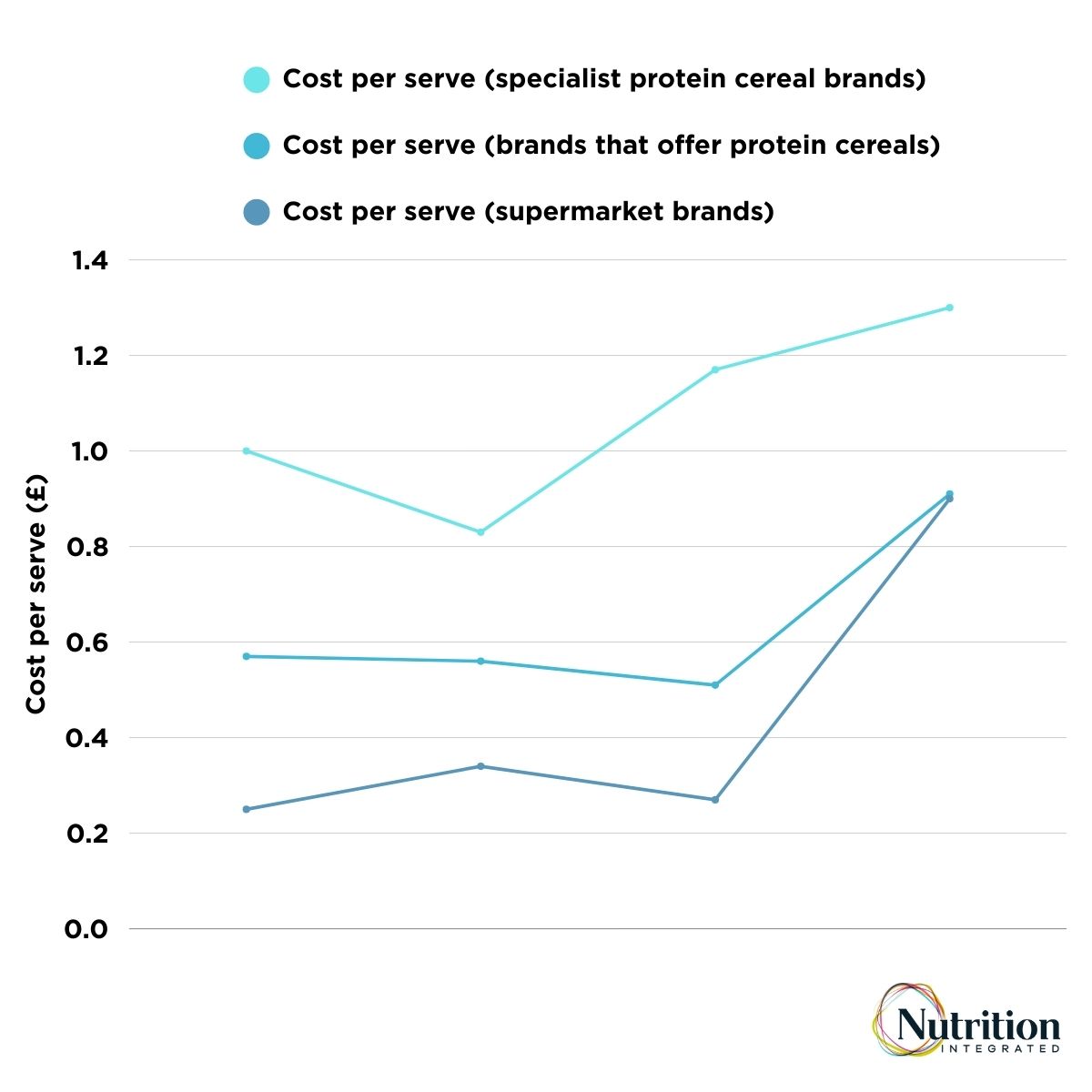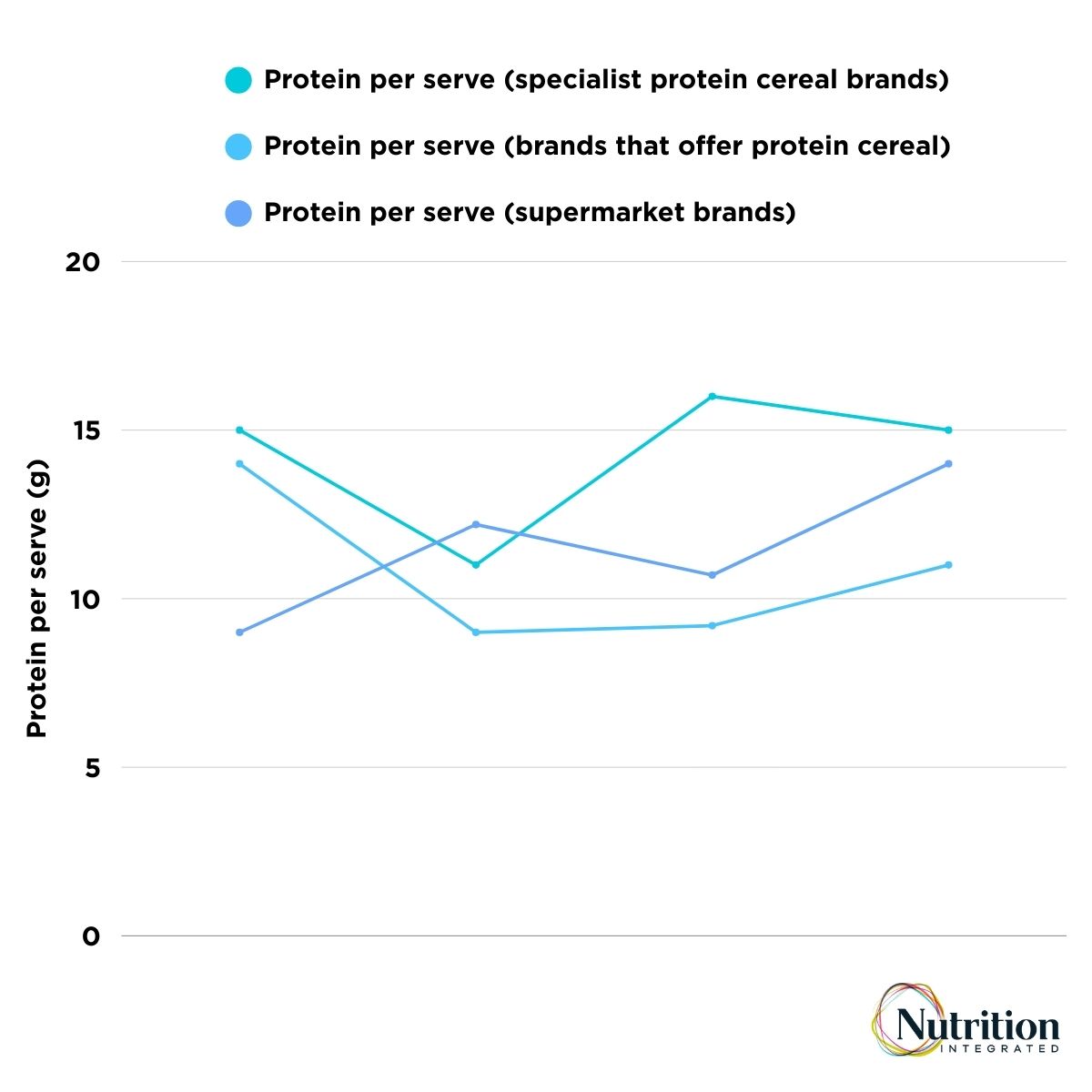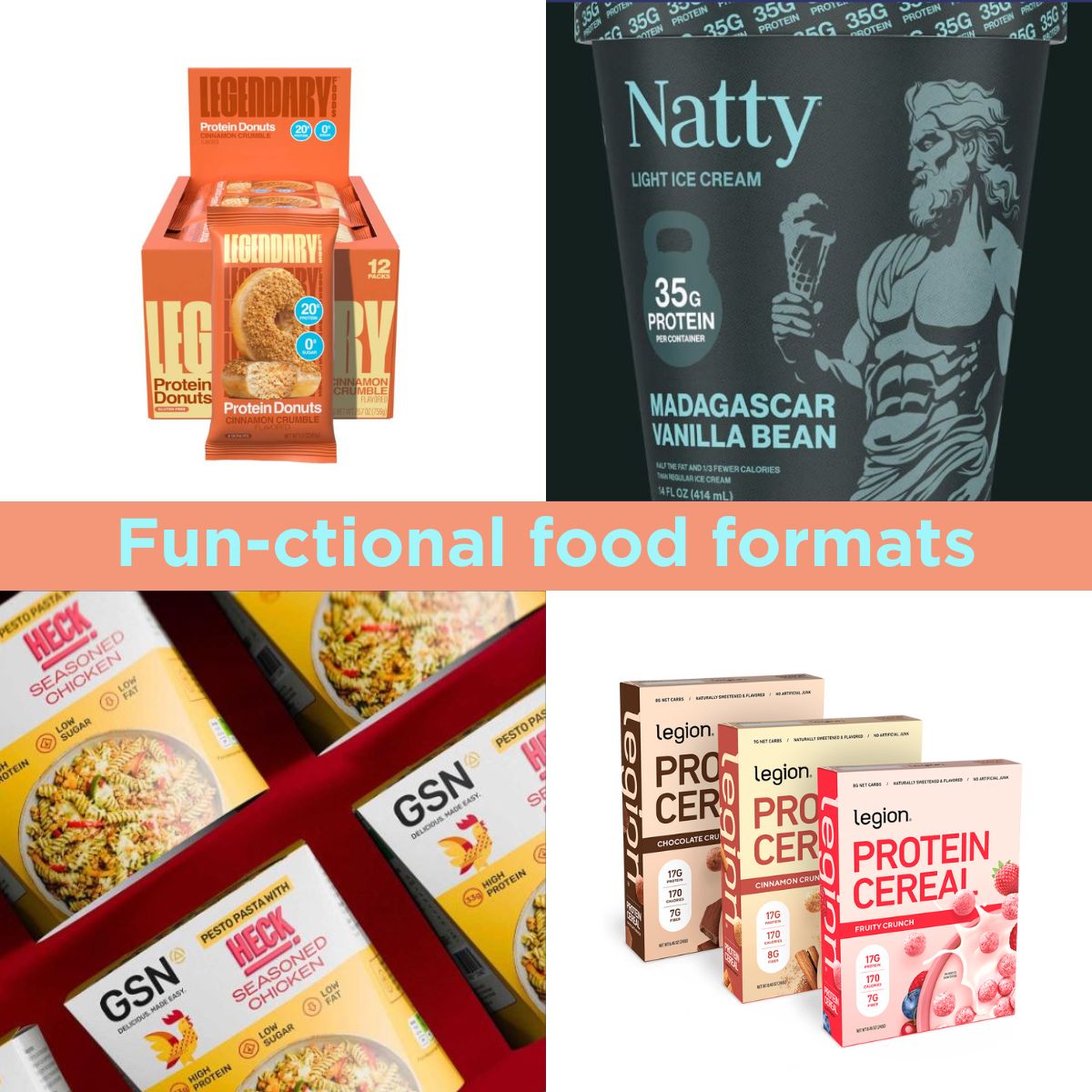Protein cereal is going nowhere, and since our last blog delving into the category, it’s become both a supermarket shelf and an Instagram breakfast staple. So we thought it would be interesting to explore the protein cereal market as it stands today in the UK and examine how pricing differs between the specialist protein cereal brands and supermarket offerings.
The first thing to note is the different categories that protein cereal falls into. You have the specialist protein cereal brands such as Surreal and Eleat, the brands that sell protein cereal amongst other products in their portfolios, e.g. Lizi's, Bio&Me, MyProtein, and the supermarket own brands, with Tesco, Waitrose, M&S and Waitrose all selling an own-branded protein cereal.
So what's going on?
Let’s start with the specialist protein cereal brands.
RRP: £6 per 240g box
Servings: 6 x 40g
Protein per serving: 14-15g pea and soy protein
Cost per serve: £1.00
RRP: £5 per 300g bag
Servings: 6x 50g
Protein per serving: 11g from hazelnuts and almonds
Cost per serve: £0.83
ELEAT Chocolate Triumph Cereal
RRP: £6.50 per 250g bag
Servings: 5x 50g
Protein per serving: 16g soy protein isolate
Cost per serve: £1.30
RRP: £7 per 300g bag
Servings: 6x 50g
Protein per serving: 15g soy protein
Cost per serve: £1.17
Next, we come to brands that sell protein granolas as part of a much wider product offering.
RRP: £4 per 350g bag
Servings: 7x 50g
Protein per serving: 13-14g soy protein
Cost per serve: £0.57
RRP: £3.95 per 360g bag
Servings: 7x 50g
Protein per serving: 9g soy protein
Cost per serve: £0.56
RRP: £4.10 per 400g box
Servings: 8x 50g
Protein per serving: 9.2g from pea protein, almonds, chickpeas
Cost per serve: £0.51
RRP: £22.99 per 750g container
Servings: 25x 30g
Protein per serving: 11g soy protein
Cost per serve: £0.92
Finally, we come to the supermarket protein cereals, which offer a mix of nostalgic-but-healthy chocolate cereals, granolas, and porridges.
RRP: £2.50 per 400g box
Servings: 10 x 40g servings
Protein per serving: 9g soy protein
Cost per serve: £0.25
Tesco High Protein Granola
RRP: £3.40 per 500g bag
Servings: 10 x 50g
Protein per serving: 12.2g wheat and soy protein
Cost per serve: £0.34
Marks and Spencer’s High Protein Vegan Chocolate Crunch
RRP: £3 per 500g box
Servings: 11 x 45g servings
Protein per serving: 10.7g soy protein isolate and wheat protein
Cost per serve: £0.27
Morrisons Protein Porridge Pot
RRP: £0.90 per 70g pot
Servings: 1x 70g
Protein per serving: 14g milk protein
Cost per serve: £0.90
Now, let's take this information and make it a bit more visual:


When you look at it this way, a few things become easier to see.
There are clear price gaps between each of the three sub-categories, but with anomalies in each that stray towards the price points of other categories. And while the specialist brands tend to offer higher amounts of protein per serving, the protein per serve difference between the three isn't as stark as the cost differences. There also aren't huge differences in the types of protein being used either, and while granolas are cheaper than the 'chocolate hoop' varieties, it isn't by much. So what's going on?
The truth of the matter is that the specialist protein cereal brands have built their reputations around being premium alternatives to other protein cereals out there through clever marketing, a bold social media presence, and loyal followers. As a result they’ve moved beyond being everyday essentials to become aspirational brands.
And that in itself enough to justify the price tag.

































